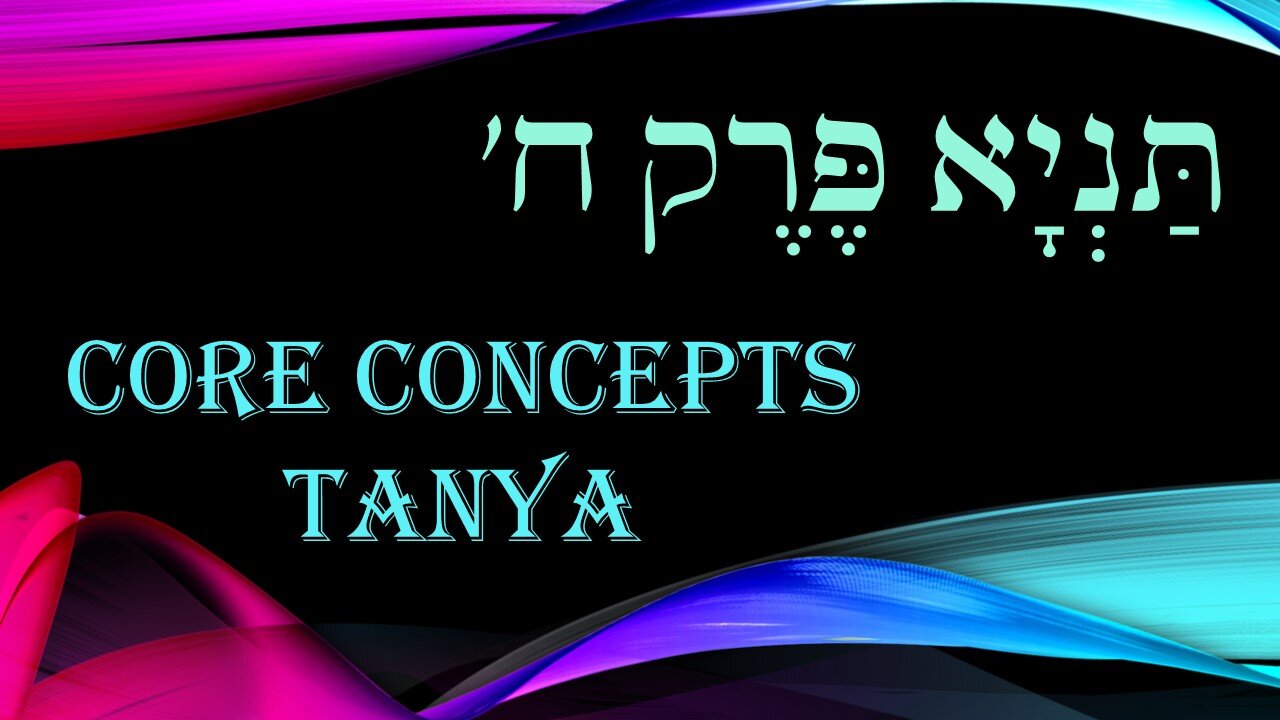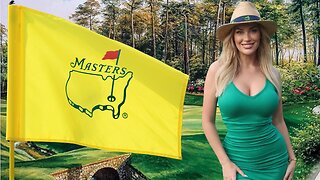Premium Only Content

Core Concepts Tanya: Chapter 8
rief Recap of Chapter 8:
Chapter 8 wraps up the general idea behind things that are permissible versus things that are forbidden.
1. Aside from his individual mission in life, a Jew has an overall mission to bring light and G-dliness into this world.
From this perspective, things that are forbidden to us are things that we don't need to accomplish our mission. In short, none of our business.
Therefore, no matter the intent in doing something forbidden the energy it creates cannot be elevated to holiness.
2. The Alter Rebbe teaches that a desire/ evil inclination for forbidden things is something foreign to a Jew.
How can this be if the desire is very real inside of us?
The Evil Inclination knows that it can't just tell us to sin, because we'd never listen to him like that.
Therefore, he wears us down, first by encouraging us to indulge in permissible acts that aren't really necessary at the time, and then slowly getting us to lower our guard until crossing the line doesn't seem so bad anymore.
That's why the disciples of the Alter Rebbe coined the phrase, "What's forbidden is forbidden; what's permitted is unnecessary."
With this thought, they tried to steel themselves against the manipulations of the Evil Inclination.
3. If a person indulges in a permissible act, AKA does something with the wrong intent, then he can repent and elevate that energy to holiness.
However, a mark is left behind, which is why there are certain cleansing processes a soul must undergo after it leaves the physical body.
4. Before he passed away, Rabbi Yehudah HaNassi said that he didn't derive any pleasure from this world, not even enough to fill his little finger.
The reason why Rabbi Yehudah is used as an example of someone to look up to is because he was a very, very wealthy individual, and yet he derived no material pleasure from his riches.
He wasn't miserly and lived an opulent lifestyle, but to him his wealth served a greater purpose, to help his people.
He used his wealth to build and support community, and, more important, to gain favor and influence with Roman nobleman and he was a "friend" to the emperor.
For him, money was a means to the end of making life better for the people around him.
5. Briefly, the concept of "the breaking of the vessels" occurs when there's too much light, and not enough vessels to contain it.
There were other iterations of our world before the world we know came about.
However, because of their design, because there was too much light revealed in those versions of the world, physicality couldn't handle it and the world "shattered."
Now, when we elevate something, it's that light from the broken vessels that’s being redeemed and revealed.
This ties into Divine Providence, that wherever we end up in life is for a purpose, and we should try to "do something Jewish" to elevate the area we are in.
6. There’s a difference between not specifically holy acts that only touch our six emotive attributes and those that involve our intellectual faculties.
More specifically, secular studies: good or bad?
Well, like everything, it depends on how we use them.
Do we go to college to get a degree so we can land a better job? That's fine.
Do we use this knowledge to deepen our service to Hashem? That's good.
We know of many great rabbis, Maimonides and Nachmonides among them, who were physicians, astrologers, mathematicians, poets, etc.
However, they used these studies to better their understanding of Torah.
All was a means to a great, spiritual end.
-
 LIVE
LIVE
JULIE GREEN MINISTRIES
1 hour agoLIVE WITH JULIE
35,879 watching -
 LIVE
LIVE
Game On!
12 hours agoA Tradition Unlike Any Other with Paige Spiranac! Master 2025 Preview!
8,864 watching -
 18:28
18:28
World2Briggs
19 hours ago $3.48 earnedTop 10 Cities That Are Held Together with Duct Tape
6.65K22 -
 17:50
17:50
Degenerate Jay
11 hours ago $3.21 earnedGoodbye Val Kilmer - Batman, Forever
10K10 -
 18:16
18:16
IsaacButterfield
1 day ago $1.66 earnedThe Police Were Called!
8.16K7 -
 8:57
8:57
Hannah Barron
21 hours agoBass Fishing from a Paddleboard!
16.2K18 -
 8:34
8:34
The Rich Dad Channel
11 hours agoIf You're an Employee You're Running Out of Time, Watch This Before It’s Too Late
7.85K -
 31:31
31:31
Uncommon Sense In Current Times
16 hours ago $1.11 earnedHow This War in Israel Was Prophesied | Joel Chernoff
17.7K2 -
 55:12
55:12
Esports Awards
15 hours agoBarney Banks on Esports, TikTok Fame, Dancing & More | Origins Podcast #1
17.1K1 -
 6:38
6:38
Mrgunsngear
13 hours ago $7.35 earnedTrump's ATF Removes Zero Tolerance Policy For FFLs & More 🇺🇸
25.7K23